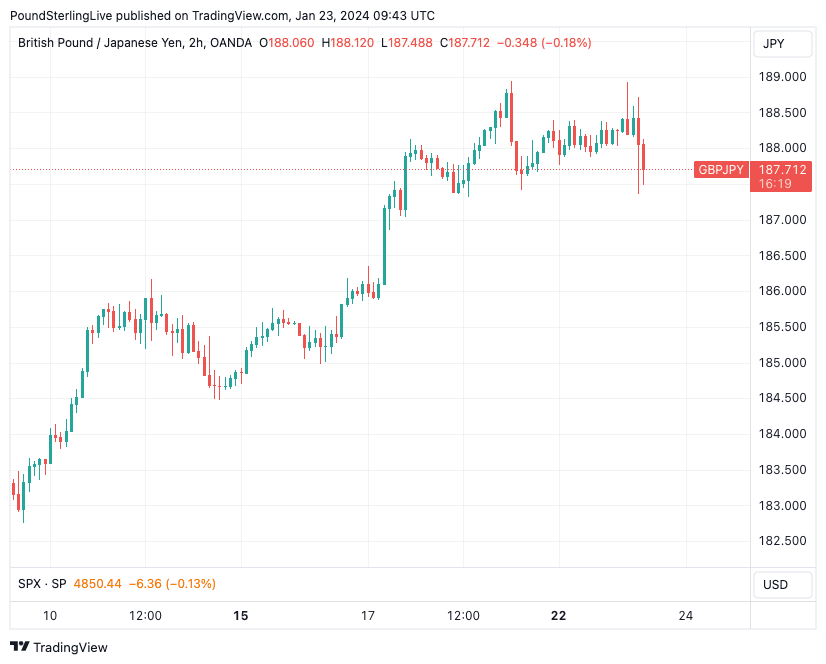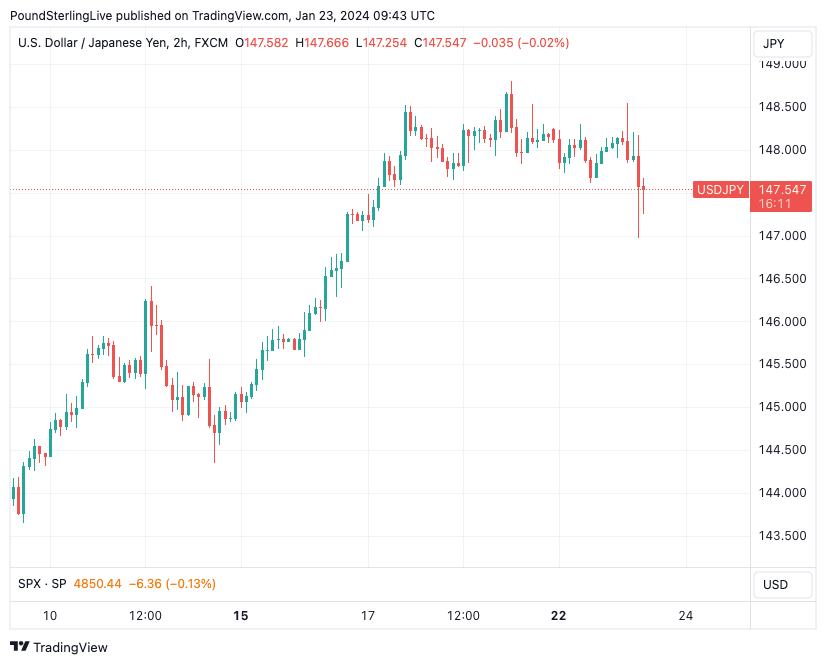Japanese Yen Strengthens As Bank of Japan Signals Rate Hikes Ahead
- Written by: Sam Coventry

Image © Adobe Stock
The Bank of Japan might not have exited Negative Interest Rate Policy in their January meeting, but all signs point to a rate hike falling within the first half of the year.
The Japanese Yen rose against most of its peers after Bank of Japan Governor Kazuo Ueda told investors that an interest rate rise is possible at any meeting, even if it does not include the release of new forecasts.
"The yen has strengthened after today’s BoJ policy meeting resulting in USD/JPY falling back towards the 147.00-level," says Lee Hardman, Senior Currency Analyst at MUFG.
Markets are heavily invested in the April policy meeting as being when the trigger is pulled and interest rates rise, largely because this is when the next set of forecasts are released.
Ueda added there is no sequence in mind for when policy normalisation arrives.
"This does suggest an exit from the last negative rates regime in the world but leaves us guessing about the timing. Without any aggressive hawkish rhetoric, action in Q1 seems unlikely," says Boris Kovacevic, Global Macro Strategist at Convera.
The Bank of Japan has tied the prospect of interest rate hikes to elevated wage settlements in 2024, and Ueda said in the post-decision press conference he has heard encouraging comments on wage hikes from big firms.
He said the number of companies that have decided to hike wages at this year's spring wage negotiations is higher than this time last year.
"The main driver for the yen’s gains have been comments from Governor Ueda in the accompanying press conference in which he indicated that the BoJ is moving closer to raising rates," says Hardman.
Above: GBP/JPY at two-hour intervals. Track JPY with your own custom rate alerts. Set Up Here.
Altogether, it sounds like a case of when, not if, rates rise.
For foreign exchange markets, it appears the Bank of Japan could raise rates just as others are lowering rates, resulting in a divergence that could support the Yen through 2024.
The Bank of Japan left the benchmark rate steady at -0.1% and kept the yield curve control parameters intact at the end of a two-day meeting.
"The Bank of Japan left interest rates unchanged at its latest policy update. However, it gave hints that interest rates may start to rise in the spring," says Rhys Herbert, an economist at Lloyds Bank.
"The yen has edged up slightly following today's BoJ announcement but that still leaves it close to recent new year lows," says Herbert.
The Pound to Yen exchange rate is down a quarter of a per cent on the day at 187.75, the Dollar to Yen is down 0.46% at 147.39 and the Euro to Yen is lower at 0.30% at 160.73.
Above: USD/JPY at two-hour intervals. Track JPY with your own custom rate alerts. Set Up Here.
Inflation in Japan has been above target for over a year, and the central bank is not expecting a return to 2% this year.
The low interest rate environment is meanwhile fuelling a stock market boom, which could give the Bank of Japan further reason to consider hiking.
"The Japanese equity benchmark Nikkei reached another record high and is on track to record its fourth consecutive weekly rise," says Kovacevic.
Encapsulating the feel-good factor that rising stock markets bring is a piece in The Times this Tuesday entitled "Good Times Return in Land of the Rising Sun"
The author writes Japan has experienced several "lost decades" and that many analysts concluded that it was impossible for the Nikkei to scale back to the peak it hit during the boom times.
But, the index in 2024 has raced ahead of its peers, rising by more than 9%, to touch a 34-year high of 36,546.95
Analysts say the negative interest rate environment is partly responsible for this boom as the Bank of Japan is the only major central bank to have kept interest rates unchanged at -0.1% despite rising inflation in Japan and globally.
"These low rates should continue to support domestic demand," Daniel Hurley, Japan equity specialist at T Rowe Price.


